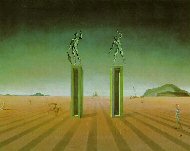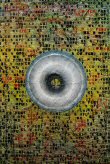There’s an unusual but apparent alliance between two philosophies which are barely aware of and rarely come into contact each other, which conjure against the physical reality and the body. The first “philosophy” is represented by what have variously been called Cyberspace, Technopoly, Cyburbia and other names.
I prefer to define it as “The Digitalization of Reality,” wherein more and more human activities are being translated into bytes. Work, communication, media, entertainment, friends, dating, sexuality, culture, shopping, politics and causes are among the growing number of human needs that have gone digital.
While the Internet was something which earlier we mostly visited, now we are inhabiting the virtual worlds full-time and engineer them according to our mental projections. The Cartesian dream of a mind without a body has almost been fulfilled (even though in his old age Descartes, in Passions of the Soul, affirmed that “the soul is jointly united to all the parts of the body”).
This separation has a long history of Western thought starting from the Judeo-Christian separation between body and soul up to people like the transhumanist Hans Moravec, the artificial intelligence researcher Marvin Minsky, or the singularity guru Raymond Kurzweil who want to download the biological human mind to a safer mechanical medium in order to achieve nothing less than immortality.
C’è un’alleanza insolita ma solo apparente tra due filosofie che sono a malapena a conoscenza una dell’altra e che raramente entrano in contatto tra di loro, che congiurano contro la realtà fisica e il corpo. La prima “filosofia” è rappresentata da ciò che è stato definito in vari modi come Ciberspazio, Technopoli, Cyburbia e altri.
Io preferisco definirlo come la “Digitalizzazione della realtà”, dove un numero crescente di attività umane vengono tradotte in byte. Il lavoro, la comunicazione, i media, il mondo dello svago, gli amici, gli incontri, la sessualità, la cultura, lo shopping, la politica e le cause socialli sono tra i bisogni umani in espansione che sono entrati nel digitale.
Mentre Internet all’inizio era un qualcosa che perlopiù visitavamo, ora stiamo abitando a tempo pieno nei mondi virtuali e li progettiamo in accordo alle nostre proiezioni mentali. Il sogno Cartesiano di una mente senza il corpo si è quasi realizzato (anche se in tarda età Cartesio, ne Le passioni dell’anima, affermava che “L’anima è unita congiuntamente a tutte le parti del corpo”).
Questa separazione riflette un’ampia storia del pensiero occidentale, a partire dalla separazione Giudeo-Cristiana tra il corpo e l’anima, fino a persone come i transumanisti Hans Moravec, il ricercatore di intelligenza artificiale Marvin Minsky o il guru della singolarità Raymond Kurzweil, che vuole fare un download della mente biologica umana in un supporto meccanico più sicuro per arrivare addirittura all’immortalità. Leggi tutto “The Digitally Divided Self
L’Io digitale diviso“


